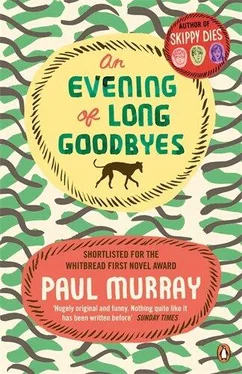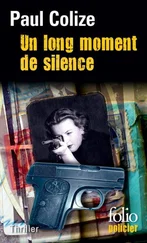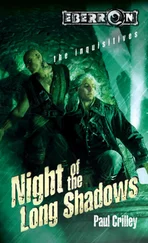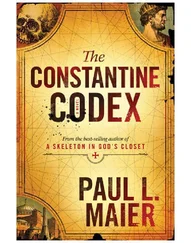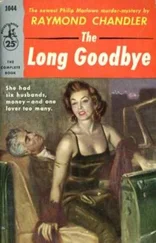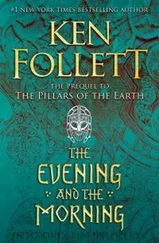‘You owe me a pint,’ Frank replied, his crooked teeth showing as he smiled; and though there seemed to be something not quite right about this exchange, I put it to the back of my mind and joined in the congratulations as, like troops returned victorious from a long and bloody war, we headed back for the house. Through the drawing-room window I saw Bel gazing out, sleepless and pale, by Mrs P’s side; I caught her eye, but she looked away before I could give her the thumbs-up. Never mind, I told myself; because even though not a single thing had gone according to plan tonight, it seemed nevertheless to have worked out for the best. The Folly was still standing, in spite of everything; surely this meant that we too would prevail, not only over the forces ranged against us, but over our own misguided desires, our own best intentions. Whether she liked it or not, Bel was part of the family: wherever life took us, I couldn’t lose her for long.
This was what I was thinking when, just in front of me, Frank stopped and pointed up into the sky. ‘Look at that funny bird,’ he said absently.
‘Oh yes,’ I said, squinting at it as it soared by us; but before I could tell him that on second thoughts it didn’t look like a bird so much as a piece of rock or something, we were enveloped in a deafening roar; and I just had time to turn and see that for some reason the Folly wasn’t where we’d left it –
The first thing that struck me — the first thing after that fast-moving piece of masonry — was that my plan had come off; because for some time after the Folly went up I was under the impression that I was residing in Chile, in a charming period hacienda, with the poet and Nobel laureate W. B. Yeats. It sounds unlikely when I set it down like that, I know; but that’s dreams for you, you can’t tell they’re dreams when you’re in them; and anyway, Yeats and I were quite happy there and I didn’t feel like rocking the boat. We were living in the lee of the Andes, on a slope of the Casablanca Valley. Santiago lay to the east and the Pacific Ocean to the west; I could see it from the verandah, a faint blue line beyond the vineyards.
It was coming into summer, so the days were long, and everything in the valley was vibrant with colour and life. Sometimes it got so hot that I felt I was being smothered: the air was like a thick blanket held over my face, and my muscles ached as if I had been pulverized. But these periods of suffering never seemed to last for long, and when the heat had lifted, I would go out to the garden behind the house and wander happily amid the bees and blooming hibiscus. Lime trees grew in an odiferous corner; Yeats would pluck the fruit to make gimlets that were like nothing I had ever tasted before, so fresh and sharp and cold that they made me gasp, like jumping into a frosty sea.
The days slipped by peacefully, with little variation. I had begun work, at long last, on my Gene Tierney monograph, and that’s how I spent most of my time. Generally I would rise mid-morning and, after a light breakfast and a cup of mountain coffee, go to my desk. While Yeats did his chores, I would write, filling page after page without pause — fancying I could feel her come to life before me as I did so, I could sense her gratitude and relief at being restored after decades of ghosthood.
Towards the end of the day I’d send Yeats down to the bodega for some of the local wine, and amuse myself with a crossword puzzle until I saw him, a spindly figure with a shock of white hair, returning up the dust-road. I’d help him prepare dinner and then, after we’d eaten, we’d sit out on the verandah together, talking and watching night fall. Out here the sunsets were like Italian operas, torrid, emotional affairs that went on for three hours or more, hanging in the sky like burning castles. Yeats could be curmudgeonly at times — it was the 1930s, and he was getting on — but he was an excellent cook and a conscientious housekeeper and we had quite a lot in common. We’d both had Follies, for one thing. Yeats’s was called Thoor Ballylee, a stone keep in County Galway that had been built by the Normans originally but had fallen into disrepair; like me, he’d had considerable trouble with the builders who were supposed to be restoring it.
‘Did they have social consciences?’ I asked. ‘Were they always going on strike?’
‘I don’t know about social consciences,’ he said, ‘but they were local men and they all had tiny, ailing farms, and any time they felt like a break they’d tell me they had to go and resuscitate them. Saving the harvest, that was the favourite excuse. In January, mind, or the middle of June. They must have thought I was a terrible fool. Mice as well, they all claimed to be terribly afraid of mice. The lead fellow, what was his name, Raftery, forever writing these interminable letters to my wife, “Dear Mrs Yates, Oi know Oi said last time the plastering would be done by autumn, but it is going terrible slow because of the mice, there is such a dreadful scurrying and squeaking every night that my men can’t get a wink of sleep, I hope Mr Yates has sent the mousetraps and that they will arrive soon, the roofing is also going fierce slow…”’ He sighed. ‘Still, I suppose it was worth it. A man needs a Folly, after all.’
‘You’re so right,’ I said, with a nostalgic pang.
He had little time for the modern world, its vapid protocols and blandishments. He didn’t believe in jobs, or in material success. He said that he had always hated work; he was proud never to have been gainfully employed, and claimed the whole idea of working for a living had been made up by the Bolsheviks.
‘Anyway,’ he said, ‘the way I look at it, living itself is a kind of work, isn’t it? I mean to say, if you have to go through the effort and trouble of being alive, you might as well take the time to do the thing right , live with some manner of style —’
‘ Sprezzatura ,’ I said.
‘Exactly,’ he said.
I explained how instead of getting a job I’d tried to reintroduce the spirit of sprezzatura into the day-to-day running of Amaurot. Yeats wasn’t surprised when it came to the part about the bank. Actually, he hated modernity even more than I did. ‘Men live such petty lives these days,’ he complained. ‘So small and scrabbling. In the days of the aristocracy a man had the chance to develop, to mould himself into something of permanence.’ He shook his head gloomily, and sank his chin into his hand. ‘When I stand upon O’Connell Bridge in the half-light, and notice that discordant architecture, all those electric signs where modern heterogeneity has taken physical form, a vague hatred comes up out of my own dark…’
‘Yes, yes,’ he would go on like this all night if you let him, ‘here, written any poems lately?’
He’d always hesitate at first; but then after a moment he’d cough and mutter that he had been tinkering with a couple of things; and take a stand by the fire with the pages in one hand and the other holding his spectacles to his eyes, reading in that dreary droning voice of his: ‘Ahem. I have heard that hysterical women say, They are sick of the palette and fiddle-bow —’
‘Hold on —’
‘Yes?’ looking up –
‘This isn’t going to be one of your difficult ones, is it, one of those slouches-towards-Bethlehem-gong-tormented-sea things, that no one can understand?’
Yeats would pause with a chilly, quizzical smile.
‘I mean, they’re good , don’t get me wrong,’ I hastened to clarify, ‘but how come you don’t do any of the old-type ones? Like that fairy one, Come away, O human child, to the waters and the wild , that sort of thing.’ For these were the ones that Father would recite to Bel and me, standing on the clifftop.
Читать дальше
